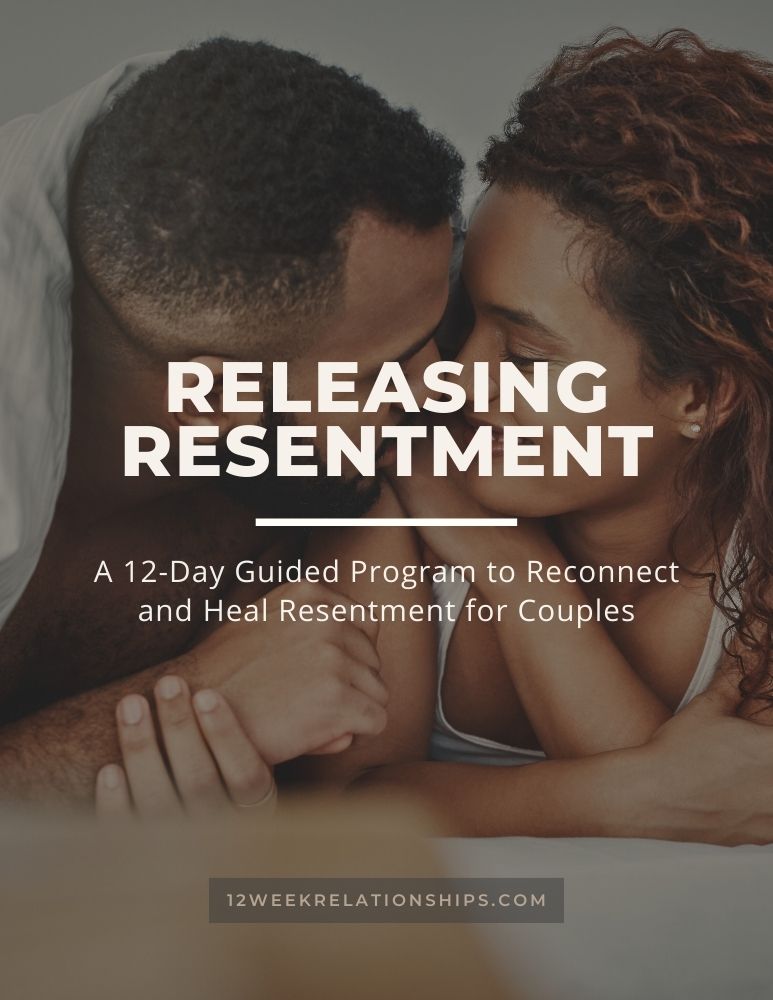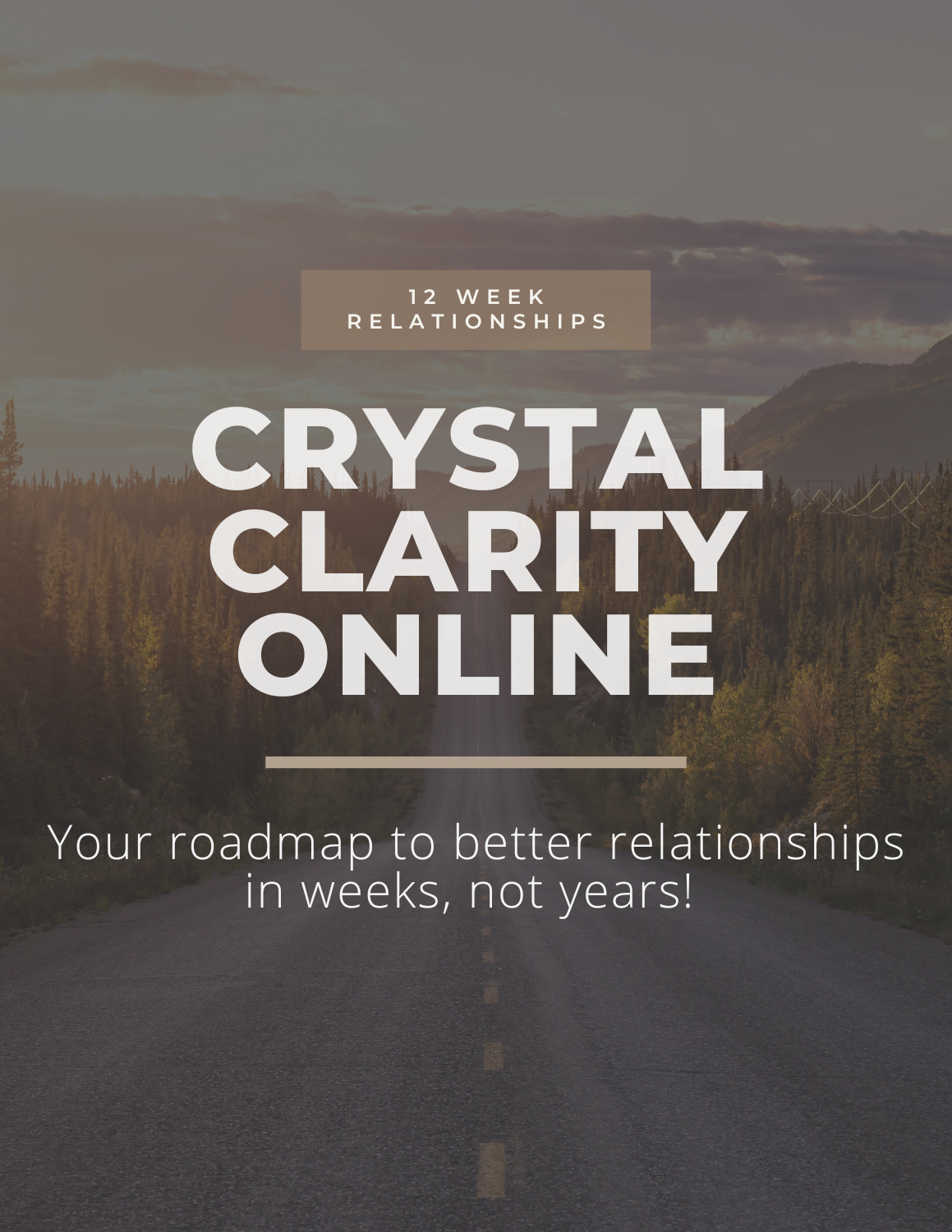Resentment is the number one indicator of divorce or separation in a relationship. Translation, the stakes are high! However, beyond the obvious consequence of your relationship ending, there are hidden costs of resentment in a relationship that couples are often not aware of, or do not acknowledge. The question is how do you identify and overcome resentment? Let's explore all of it in this article.
Listen/Watch this Article on the TWR Podcast
If you'd prefer to watch or listen to the podcast, here's How to Resolve Resentment in 3 Steps from the TWR Podcast.
How Resentment Affects Your Relationship
Chances are that you already know the emotional toll that resentments exact. You know the hours of time and energy lost in arguments. You've felt how your minds constantly ruminates over these underlying relationship issues. You've probably also witnessed the resentment cycle. The process of addressing an issue, only for it to get better for a short time, then resurface after a week or two. It's common for couples to be stuck in the resentment cycle for months, or even years.
But beyond affecting your mood and emotional health, here's what you might not yet realize.
Research has shown that couples who are resentful towards each other have weaker immune systems. Not only are they getting sick more often, but they also have a far higher chance of developing chronic disease. In fact, newer studies are showing the link between resentment in a relationship to autoimmune diseases like Crohn's, as well as various forms of cancers!
Being in a resentful and contentious relationship not only puts your relationship at risk but also compromises your mental and physical health.
The bottom line, it is imperative that resentment in a relationship is properly addressed.
3 Steps to Resolving Resentment
When it comes to overcoming resentment, it may often feel like an impossible task. The reason is that no matter how many times you both have tried to work things out and no matter how many happy and intimate moments are shared, you both wind up back in the same space of resenting each other.
The relationship then becomes anxiety-ridden as both of you feel like you are walking on eggshells around each other. It can often become so bad that you both just lower your standards in the relationship. Sometimes to the point where "not fighting" becomes your definition of a good day.
So how can resentment be overcome?
Well, the process is not that complicated. But it is challenging as it requires self-discipline on both sides.
Here's my three-step process that I use with clients.
- Define Resentment. Your first step is being able to define what resentment is. You both know the feeling, but in order to move on from it, you have to also understand what it is and why you feel the way that you feel.
- Learn How Resentments are Resolved. You need to gain an understanding of HOW resentments are actually resolved. This is a big one and though this step is simple in theory, it is very hard to put into practice.
- Identify What Gets in Our Way. Both people must be able to identify the unhealthy behaviors and attitudes that promote resentment and make the commitment to not engage in them.
Let's dive into each topic and break this down even more.
Step One. Defining Resentment
When it comes to defining resentment, what we're looking at is the accumulated disappointment, frustration, and anger that is felt because of your partner's inability to meet your expectations.
More simply put, your partner is not what you want them to be!
The assumption here is that you are meeting your partner's expectations and so your question then becomes "Why can't they meet mine?" As we take this moral authority stance, we are denying a truth when it comes to you and your partner's needs; "You are not meeting their expectations either!"
The truth is when resentment occurs in a relationship, it is happening on both sides. Both people are failing to meet each other's expectations and that is why you both resent each other.
You may know a lot about each other intellectually, but that is far different from being able to emotionally understand one another. Intellectual knowledge of your partner involves facts and characteristics about them like their favorite food, but emotional intelligence requires you to understand how to love, support and connect with them, especially when they need that support the most.
This leads to the next point because even though you are aware of how your partner is disappointing you and vice versa, it is clear that you both do not know how to properly emotionally support each other.
Ok, so understand where resentments come from. Let's move to the process of resolving resentment.
Step Two. Learn How Resentments Are Resolved
When it comes to resolving resentment, you must be able to go beyond what you think you know about each other, and truly be able to emotionally understand one other.
I know, you're still asking, "OK, but how do you overcome resentment?"
It is actually quite simple.
When each partner can TRULY SEE the other person's point of view away from your own perspective, resentment will magically go away. In fact, the resentments that have been built up over time can actually go away rather quickly.
But you saw the magic word right? TRULY SEE...
When you can put aside your view of your partner, and really begin to listen to them and to see them as they are, and your partner does the same for you, this begins the foundation for true understanding and acceptance of one another. That's what it means to "truly see" each other.
This is the real definition of emotional connection and intimacy.
Because the truth here is that the expectations and disappointments that you have of each other, are clouding your abilities to truly see one other.
This leads us to our next step!
Step Three. Identify What Gets in Our Way
In order to establish an emotional connection and to overcome resentment in a healthy way, it is important to STOP engaging in closed-off and defensive behaviors.
When it comes to addressing resentments specifically, these are the 2 most common defensive behaviors to avoid.
1. Listening to the recording in your head more than your partner
You know, your partner is sharing their feelings and perspectives, and at the same time, you are kind of listening but more paying attention to your own thoughts of frustration about them.
- "I can't believe that they are saying that!"
- "They shouldn't have taken it that way."
- "What an idiot, this is crazy."
- "How did I pick such a dumb partner"
At this point, you are more just looking to hear what you want to hear from them, rather than really trying to understand what is being said.
And as your eyes roll and your body takes a more aggressive stance, both of you at this point can feel the discomfort and tension in the conversation.
Instead of having an open and healthy dialogue, it is now only a matter of time before this conversation explodes.
2. Acting like a judge instead of an advocate
This is a common one where one or both partners will take a high moral authority stance of "Prove to me that I am wrong."
They will express their anger based off of their disappointments about their partner, and in their mind, this is being authentic and emotionally available. In truth, this just creates a contentious dynamic where the partner who is able to argue and prove their point better wins.
But in reality, there is no winner.
In these conversations, there is a lot of cutting each other off when each person is sharing, and common statements include:
- "That's not what I meant by that."
- "Show me where I'm wrong."
- "It is your job to change my feelings."
- "This is why I am on you because you can't do anything right."
The goal here is to not have a productive and open conversation, but it is solely about having one partner take the majority of the blame for all of the relationship problems.
And when these 2 common defensive behaviors take place, you have now been arguing for hours and hours, and the mental and physical toll of your resentments towards each other are being felt.
This is not an easy space to be in, and this is not how a relationship should be.
Conclusion
Dealing with resentment is not easy, and it can go sideways quickly. Overcoming resentments in a relationship requires a high level of guidance, structure, and tools to go from arguing with each other, to truly being able to connect and love one another.
This is why we created Releasing Resentment: A Proven 12-Day Guide To Reconnect and Heal.
Over the course of 12 days, you will be guided each day in video form, as well as being navigated through 12 days of workbook exercises.
This program is not only a step-by-step guide, but it is designed to be completed in just 15-30 minutes each day. It helps couples:
- Feel free again without the feeling of walking on eggshells around each other.
- Be able to talk to each other and truly feel emotionally supported and understood.
- Allow the love that you have for one another to be the focal point of your relationship again.
While this program is incredibly valuable, we decided to price it at only $47 because we believe that this is a tool that needs to be accessible to EVERYONE.
If you would like to learn more or enroll in this program, visit Release Resentment - 12 Day Guided Program. I will see you inside!











